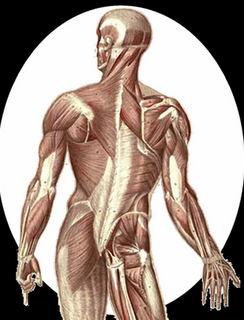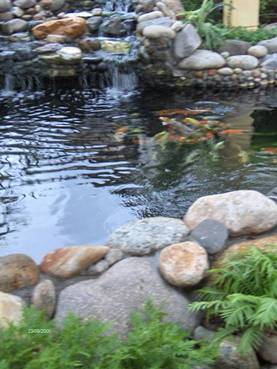
The Role of Members in the Church
1 Cor 12:12-27, For as the body is one and has many members, but all the members of that one body, being many, are one body, so also is Christ. 13 For by one Spirit we were all baptized into one body--whether Jews or Greeks, whether slaves or free--and have all been made to drink into one Spirit. 14 For in fact the body is not one member but many. 15 If the foot should say, "Because I am not a hand, I am not of the body," is it therefore not of the body? 16 And if the ear should say, "Because I am not an eye, I am not of the body," is it therefore not of the body? 17 If the whole body were an eye, where would be the hearing? If the whole were hearing, where would be the smelling? 18 But now God has set the members, each one of them, in the body just as He pleased. 19 And if they were all one member, where would the body be? 20 But now indeed there are many members, yet one body. 21 And the eye cannot say to the hand, "I have no need of you"; nor again the head to the feet, "I have no need of you." 22 No, much rather, those members of the body which seem to be weaker are necessary. 23 And those members of the body which we think to be less honorable, on these we bestow greater honor; and our unpresentable parts have greater modesty, 24 but our presentable parts have no need. But God composed the body, having given greater honor to that part which lacks it, 25 that there should be no schism in the body, but that the members should have the same care for one another. 26 And if one member suffers, all the members suffer with it; or if one member is honored, all the members rejoice with it. 27 Now you are the body of Christ, and members individually.
The human body is an amazing creation of God. It is marvelously complex yet unified, with unparalleled harmony and interrelatedness. When the members of the human body do not function in harmony it is due to an injury or disease. Without unity we are as productive for Christ as a human body that has a disease that makes the head incapable of coordinating proper bodily function.
The scripture above tells us there are many members to the body. There are many different parts but only one body. So also is the church, the body of Christ. The church is a body with many members, with Christ as its head. We are one with Christ. We became one with Christ through the baptism into Christ.
Paul imagines parts of the human body talking to each other. The members are feeling discontented. They feel inferior. Their gift was not prominent and therefore they were discontented, they felt insignificant. They may have wanted the gift of exhortation instead of labour. Or maybe it was the quality of their gift; they may have the gift of teaching, but there were others in the churches that were more gifted at teaching.
This attitude of inferiority is not one of humility. In fact it is a selfish, self-centered attitude that feels that you are not needed because you don't have a more prominent gift. There are no insignificant members in the body. The work of the church is also to be Christlike; to do what Christ did when he was here! He taught large crowds on occasion but for the most part he spent his time ministering to individuals, caring for people, one on one. We too can minister to individuals. To encourage, strengthen and help people, to teach them the truth of God's word, to transform them. The church does not just function on Sunday morning. It goes on out there all week. We come to church to worship God and thereafter continue to live for Christ. That is what Paul is arguing here. We are only kidding ourselves if we say that because we cannot lead, or teach, or preach, we are not a part of the body and do not have a function within it. This is an important word of encouragement for all of us. We are all needed.
Every part of your body, no matter how insignificant or inferior it may seem, has a distinctive and important function to fulfill. It would be a ridiculous body if every member did the same thing. Each has received some gifts or talents on which the others depend. Your talents are useful! Paul goes on to encourage them even further by saying that every member has their place in the church.
The eye does not decide that it is going to see, God gives it that ability. The ear does not develop its own ability to hear, it was given that ability by God and placed on the side of the head to function in that position.
Exodus 4:11 So the LORD said to him, "Who has made man's mouth? Or who makes the mute, the deaf, the seeing, or the blind? Have not I, the LORD?
God has placed the members in the body as it has pleased Him. He is the one who gives us our abilities and positions. We are who we are, and where we are because of the talents and gifts God has endowed us with. Questioning our gifts is like questioning God.
Rom 9:20-21 … who are you, O man, who answers back to God? The thing molded will not say to the molder, "Why did you make me like this," will it? 21 Or does not the potter have a right over the clay, to make from the same lump one vessel for honourable use, and another for common use? NKJV
God not only gave you the talent you have but he also added you to his church.
It should forever settle the question of feeling insignificant as part of the body.
There is another side of the issue - the attitude of pride, an independent spirit. (verse 21) They were considering others of little value. So Paul gives them some principles of body life to rebuke their attitude of arrogance.
Individualism is appealing because the natural man does not like depending on or obeying others. The philosophy that we are basically self-sufficient and do not need anyone else is the opposite of God's will for man. In a body the greater members are dependant upon the lesser members. This is a great principle to learn because it makes us appreciative of those who are working with us in the ministry.
What happens to a member if you remove it from the body? It dies. What happens to the body if you remove a member? It is either crippled or it dies depending on which member you remove. When some of the members don't do their part others have to compensate for them. The body can compensate for the members that do not function properly but it will never function to its full potential without every member doing their part.
Paul talks about giving honour to those parts of the body by clothing them. The more you cloth a body and adorn a body the more honor you give it. There is this inbuilt tendency in human life to try to augment those parts that are less honorable. Notice how the Apostle puts it, "parts we think less honorable." They are not, really. It is just our idea of them that makes them appear that way.
The "but" in the middle of verse 24 brings the argument back to God's sovereign purpose. By saying that God "has given greater honour to the part which lacks it." Paul seems to be saying that God has caused us to protect our unpresentable parts from exploitation by properly covering them. It is normal and natural for the body to look out for its weaker parts, to protect and care for them.
When we begin to understand what the church is, as God sees it to be, this will be the result. You will begin to have the same care for one another. You will stop saying that teachers and leaders are all-important. You will see that God works the whole body together in a beautifully articulated and coordinated way.
In Ephesians 4:11-16, Paul wrote, "And He gave some as apostles, and some as prophets, and some as evangelists, and some as pastors and teachers, for the equipping of the saints for the work of service, to the building up of the body of Christ; until we all attain to the unity of the faith, and of the knowledge of the Son of God, to a mature man, to the measure of the stature which belongs to the fullness of Christ. As a result, we are no longer to be children, tossed here and there by waves and carried about by every wind of doctrine, by the trickery of men, by craftiness in deceitful scheming; but speaking the truth in love, we are to grow up in all aspects into Him who is the head, even Christ, from whom the whole body, being fitted and held together by what every joint supplies, according to the proper working of each individual part, causes the growth of the body for the building up of itself in love".
There is a common goal in the Body of Christ. The goal is the growth of the body. As we do our individual part, this causes the growth of the body. The Body is responsible for the building up of itself in love as it ministers to each member.
God has chosen for this growth to occur in the church. He has chosen to put us together in a spiritual body of believers where we can learn to be like Him. He has given gifted leaders to equip us for ministry. He has called us to attain a unity of the faith. He has called us to become mature, to be like Christ. He has called us to speak the truth in love to one another, and thus grow up in all aspects into Him, who is the head, even Christ.
Concern for one another ought to be the hallmark of the Christian community. This is certainly true of the physical body. All the members work together to protect and care for one another. If you try to punch me in the face my arm will respond and attempt to stop you, because my arm cares about what happens to my face. If my arm is unable to stop the punch my whole body will weep with my face.
We belong together and we suffer together. Individually and collectively, we are Christ's very body, the church for whom he died. Every church is fully equipped to serve the Lord, to carry on the ministry he began. There is no place in the body for discontentment, or envy, or jealousy. And there is no place in the body for pride or arrogance. The sovereign God has given us the gift he wants us to have and placed us where he wants us to use it.
We all need to serve the Lord effectively but if those members don't work in harmony with the head or if they simply refuse to work the body is crippled and frustrated.










